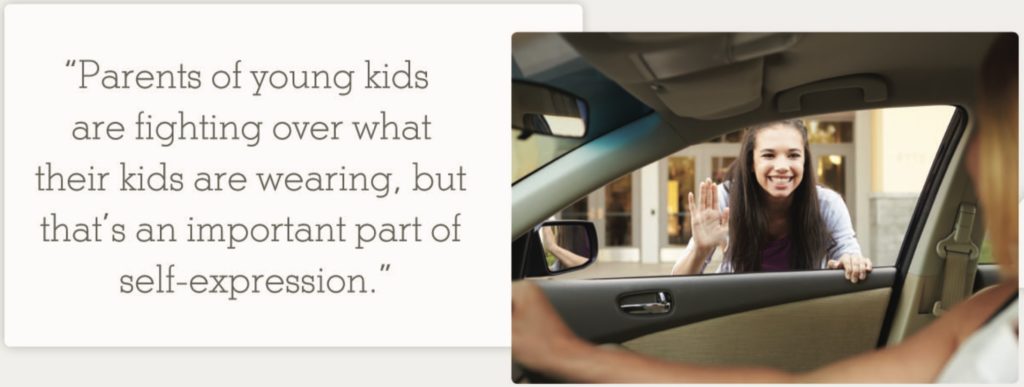Helping Kids Grow Up | How to Break Free from Helicopter Parenting | by

While few parents aspire to label their parenting style, Denver pediatrician Dr. Debra Berry says she gets more questions about the “right” way to raise kids than she used to.
She says parents in the Denver area, like pretty much anywhere else, often fall prey to micromanaging their children’s lives — sometimes referred to as helicopter parenting. The rub? Many parents do not see this as a hindrance, Berry says, but just what attentive, loving moms and dads do.
“The thing is, they feel like they are being good parents, when in fact, they are overinvolved,” Berry says.
A common example of helicoptering, she says, is parents who are finding out when school assignments are due, and making sure their kids are doing everything on time. “Don’t try to get your kid out of trouble,” she says.
Dr. Sheryl Ziegler, a Denver-based therapist author of “Mommy Burnout: How to Reclaim Your Life and Raise Healthier Children in the Process,” says parents sometimes joke about being a particular stereotype. She tries to help them see that reality is much more nuanced.

Parents who struggle to let go should remember they are actually “raising adults, not children,” — a sentiment that’s gained traction in Utah, says Kerry Stutzman, a licensed marriage and family therapist in Denver.
Utah’s so-called free-range parenting law took effect in May, permitting parents to decide whether their children are mature enough to bike to school, be home alone or walk to the playground unattended. The idea has appealed to other states as well; New York and Texas are said to be considering similar legislation.
Legally
Here in Colorado, the laws defer to common sense and circumstance, says Dave Kaufman, community services officer with the Boulder Police. Contrary to popular belief, he says, “There is no Colorado law about the minimum age to leave kids alone.”
In general, leaving kids in cars applies in the same way, Kaufman says. “There’s no law saying you can’t leave your child in the car while you run in someplace,” he says, “But a car can be mobile.” He says if he came upon a car with a child in it and the door was unlocked, he would be unsettled.
In these circumstances, Kaufman says he bases his policing on how the parent responds when confronted. “We don’t want to be the nanny state,” he says. “Education works a lot better, but if the parent is dismissive of what I’m telling them, we can take it the other route and write them a ticket. Then they get to explain to a judge why what they did was safe.”
Kids Should Make Decisions Too
Law and common sense aside, parents can let kids make many of their own choices. Berry says that it should start when they are very young. These practices not only help a parent avoid helicoptering but prime them to skirt arguments later when their kids hit preschool-age.
“Let the kids make all the decisions that aren’t important,” Berry says. “Parents of young kids are fighting over what their kids are wearing, but that’s an important part of self-expression.”
‘Let Them Fail’
Stutzman says she believes most kids can be managing their own schoolwork by middle school, and that many parents have a hard time letting go on this particular issue. And while it may be hard to watch, Stutzman says forgetting to turn in schoolwork falls into an important category: the “affordable mistake.”
Things like forgetting your lacrosse stick at practice or spilling milk all over the floor are affordable mistakes. “Remember that he is not at risk of harm,” she says. “It just might be inconvenient.”
Berry agrees and says, “I’ve heard it said, ‘Fifth grade is the year you’re supposed to let them fail a class.’”
Not eating dinner and being hungry? An affordable mistake. Skinning a knee? Also affordable.
“In my practice, many parents feel like everything is an unaffordable mistake,” Stutzman says. “Not wearing a helmet, on the other hand, is unaffordable.”
Ziegler says it’s OK to have a “helicopter style” and be less flexible around certain non-negotiables, be that an academic standard, sitting down to family dinner a certain number of nights per week or attending religious services on Sundays.
“Be clear about your values as a parent,” she says. “Not everything can rise to that occasion, so maybe you are more agreeable on other things.”
‘Build the Confidence’
In an effort to give her daughter a sense of achievement, Berry recently let her daughter, a freshman in high school, take the Denver light rail to a writing conference.
“I wanted her to buy the tickets and have a good learning experience,” she explains. “A lot of these kids will want to live in a city someday. You build the blocks to help them build the confidence.”
Berry says she talks to a lot of parents of teens about the search for identity in late middle school and early high school, where the stakes are higher for parents who continue to helicopter.
“It can trigger anxiety and you can stunt their emotional development if you are making all the decisions for them,” she says.
Ziegler says what matters most as a parent is to show your child that you do trust him or her by saying yes when you can, while still protecting where you must. “What’s in between helicopter and free-range?” Ziegler says. “Thoughtfulness.”
Tags: parenting
Leave a Comment
Please be respectful while leaving comments. All comments are subject to removal by the moderator.
